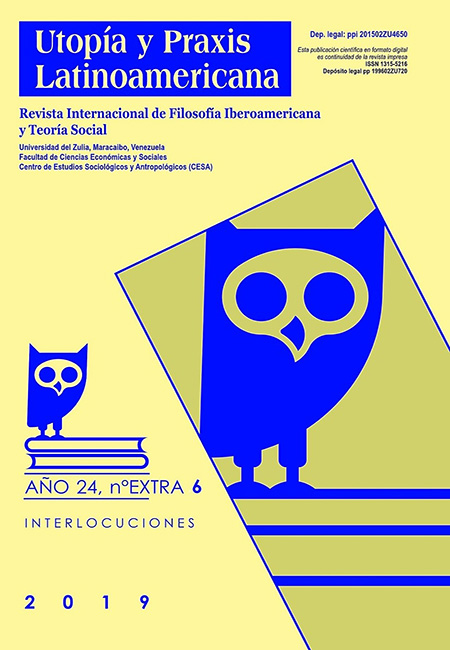Previous competences of information technology governance for the board of directors in Indonesia
Resumen
ABSTRACT
This study focuses on the requirement of having a mechanism with respect to IT systems, highlighting any visible conflict between the organization and the IT governance structure. The aim of this study is to create an IT competence prototype that will facilitate attaining desired IT governance. Implications of this research are that the specific prototype developed can be used to gauge the IT competency in other domains. Moreover, the results and findings of this study can also be used as a starting point for future researches.
RESUMEN
Este estudio se centra en el requisito de tener un mecanismo con respecto a los sistemas de IT que resalte cualquier conflicto visible entre la organización y la estructura de gobierno de IT. El objetivo de este estudio es crear un prototipo de competencia de IT que facilitará el logro del gobierno de IT deseado. Las implicaciones de esta investigación son que el prototipo específico desarrollado puede usarse para medir la competencia de IT en otros dominios. Además, los resultados y hallazgos de este estudio también se pueden utilizar como punto de partida para futuras investigaciones.
Citas
BIBLIOGRAPHY
AL-HTAYBAT, K, VON ALBERTI-ALHTAYBAT, L AND ALHATABAT, Z )2018(. "Educating digital natives for the future: accounting educators’ evaluation of the accounting curriculum", Accounting Education, 27(4), pp.333-357.
ALREEMY, Z, CHANG, V, WALTERS, R AND WILLS, G (2016). “Critical success factors (CSFs) for information technology governance (ITG)”, International Journal of Information Management, 36(6), pp.907-916.
ADEDOYIN, O AND OKERE, E (2017). “The Significance of Inclusion Concept in the Educational System as Perceived by Junior Secondary School Teachers: Implications for Teacher Training Programmes in Botswana”, Global Journal of Social Sciences Studies, 3(1), pp.13-28.
ADEWALE, AA (2016). “Change, customer satisfaction and competition: Issues from the strategic management context”, International Journal of Economics, Business and Management Studies, 3(2), pp.55-66.
AHMAD, SD (2018). “Legal Protection Carried Out by the Financial Service Authority in a Dispute between Consumers and Insurance Companies in Indonesia”, International Journal of Social and Administrative Sciences, 3(1), pp.55-61.
AKAY, E (2018). “Support Services in Social Studies Courses for Students with Hearing Loss”, Journal of Education and e-Learning Research, 5(1), pp.60-71.
AKEJU, KF (2018). “Informal Sector and Tax Compliance: The Role of Associational Membership in South West, Nigeria”, International Journal of Applied Economics, Finance and Accounting, 3(1), pp.1-9.
ALBASU, J AND NYAMEH, J (2017). “Relevance of stakeholders theory, organizational identity theory and social exchange theory to corporate social responsibility and employees performance in the commercial banks in Nigeria”, International Journal of Business, Economics and Management, 4(5), pp.95-105.
ALE, AS (2018). “Assessment of Dual Carriageway for Sustainable Socio-Economic Development in Ado Ekiti, Nigeria”, International Journal of Sustainable Development & World Policy, 7(1), pp.27-36.
ALHAKIMI, SS (2018). “Export and Economic Growth in Saudi Arabia: The Granger Causality Test”, Asian Journal of Economics and Empirical Research, 5(1), pp.29-35.
BUNNEY, D, SHARPLIN, E AND HOWITT, C (2015). “Generic skills for graduate accountants: the bigger picture, a social and economic imperative in the new knowledge economy”, Higher Education Research & Development, 34(2), pp.256-269.
GISORE, N AND JEPCHUMBA, I (2017). “Effect of Budget Defict on Private Investment in East African Community for the Period 1981-2015: A Panel Data Analysis”, International Journal of Business, 4(1), pp.26-37.
TUREL, O LIU, P AND BART, C (2017). “Board-level information technology governance effects on organizational performance: The roles of strategic alignment and authoritarian governance style”, Information Systems Management, 34(2), pp.117-136.
WYRASTI, AF, SA’DIJAH, C, AS’ARI, AR AND SULANDRA, IM )2018(. "The Misanalogical Construction of Undergraduate Students in Solving Cognitive Conflict Identification Task", International Electronic Journal of Mathematics Education, 14(1), pp.33-47.
SHAHBAKHSH, M, ELHAMIAN, N AND POUR, HS (2019). “Empowerment Relationship in Intra Organization Entrepreneurship”, Dutch Journal of Finance and Management, 3(1).
KHOSRAVIPOUR, N, JAFARI, M AND REZAEI, M (2018). “Investment opportunities and lack time report of the auditor”, UCT JOURNAL OF MANAGEMENT AND ACCOUNTING STUDIES, 6(01), pp.1-7.









